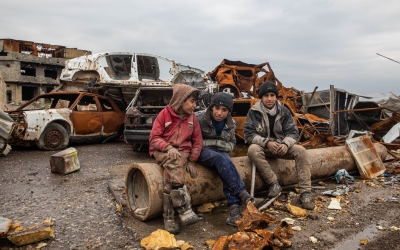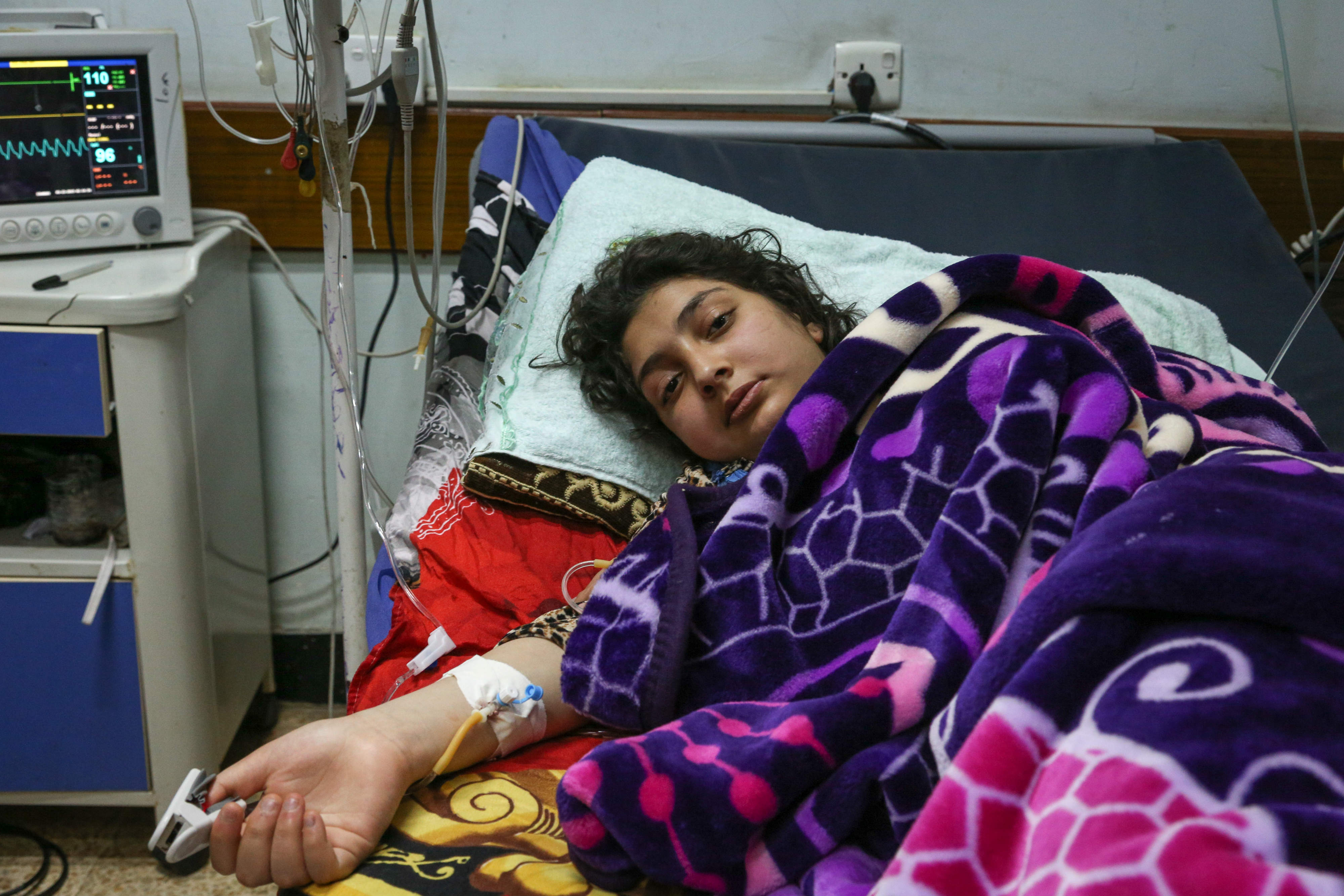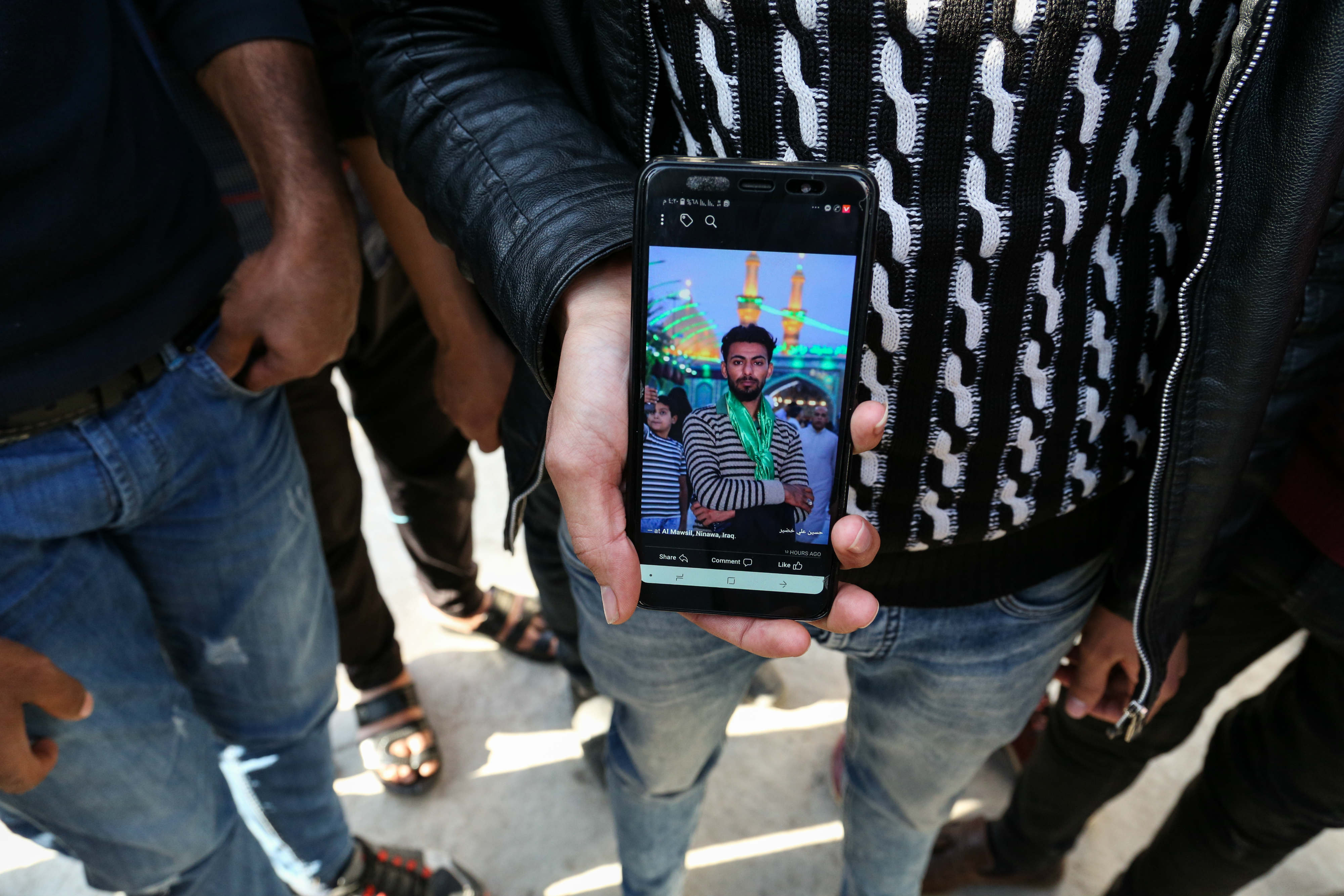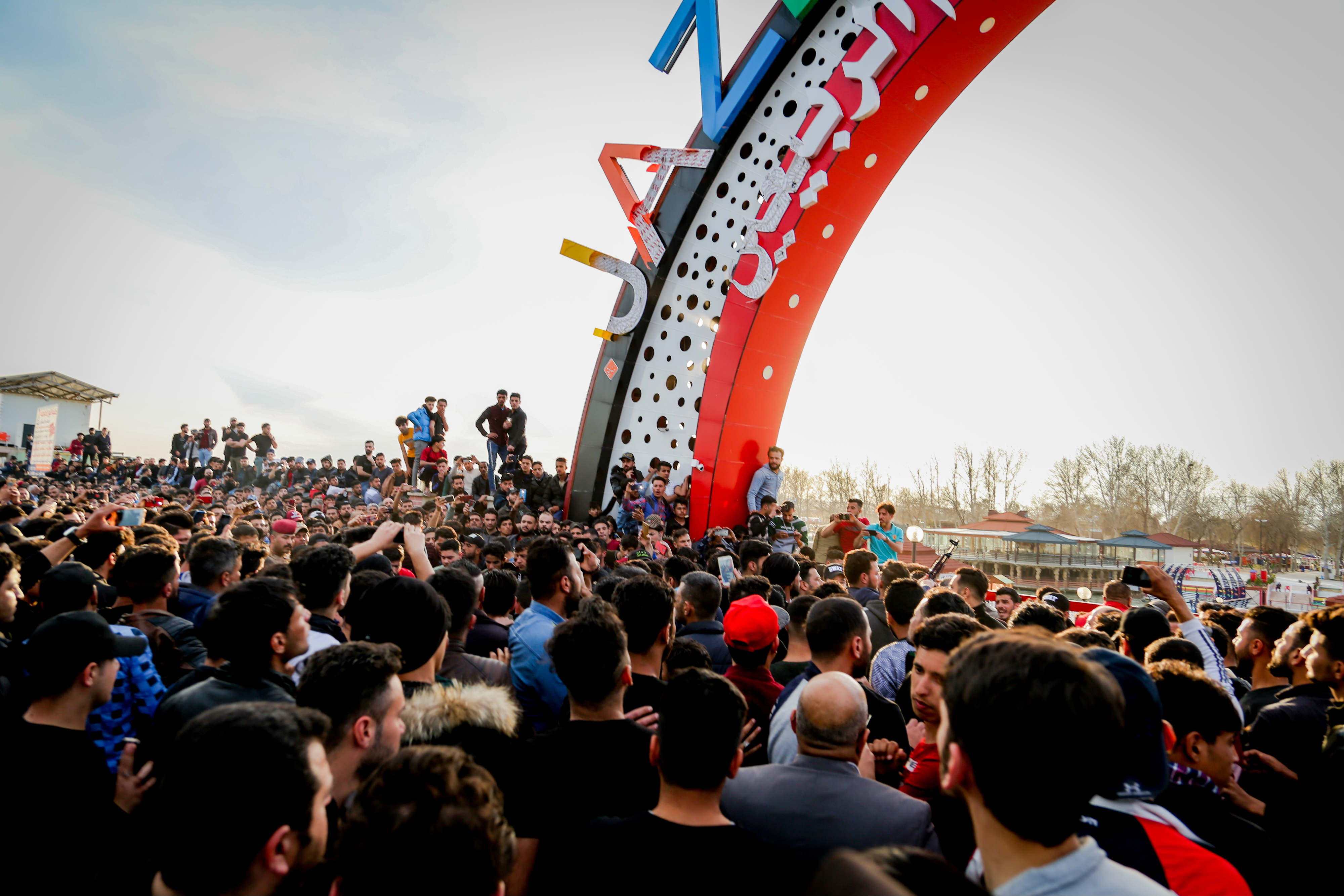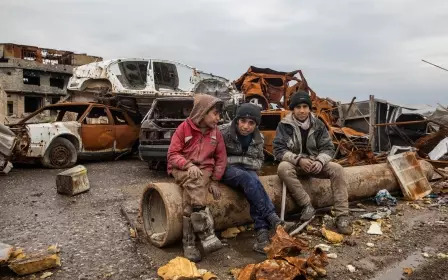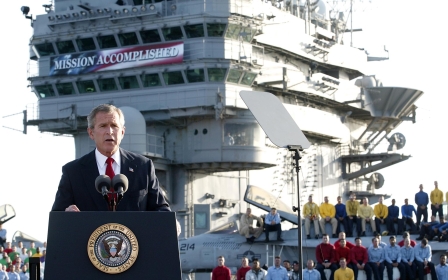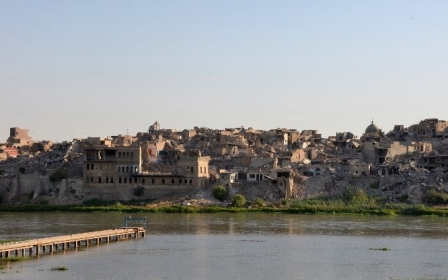'Let me die in the river': Mosul struggles to come to terms with ferry disaster
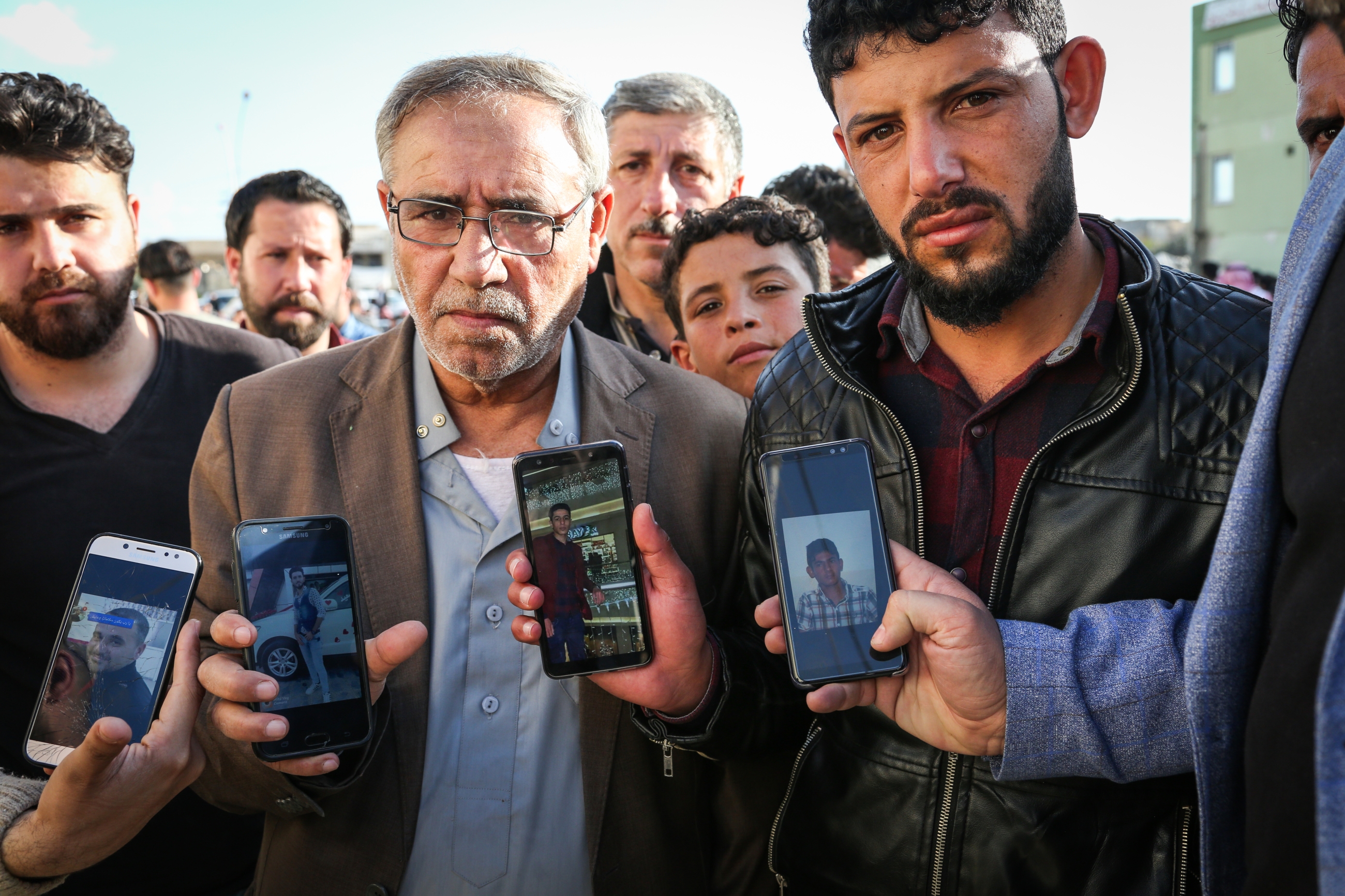
Aya Khartan Khader doesn’t remember exactly what happened on Thursday.
For now, at least, her memories of the ferry disaster on the Tigris River in the northern Iraqi city of Mosul are detached from the darker reality.
“I was on the ferry with my friend and her grandparents. Then someone pushed me into the water. Next thing I remember, I woke up in the hospital,” the young girl told Middle East Eye from her sickbed.
Still admitted to the al-Salam Hospital in east Mosul, Khader is among the 60 to 70 passengers known to have survived when a ferry carrying over 200 people capsized.
At least 97 have been confirmed killed. The final death toll remains unknown.
“Aya was actually going to the island with her own grandparents and her uncle," Khader’s 16-year-old brother Laith corrected once out of earshot.
"She was saved from the water by a rescue team, but her grandmother drowned and we are still missing her grandfather and her uncle.”
Chaotic scenes followed the accident. Civilians and rescue teams plunged into the river attempting to pull struggling victims from the water, as Iraqis on the banks looked on desperately.
Amid the confusion, Khader was left in the police station for five hours, cold and wet, before she was found by her family and brought home.
“Then Aya got dizzy, had abnormal body movements and fainted, and we brought her to the hospital. The doctor says she was suffering from a convulsion due to lack of oxygen to the brain," said her uncle Rakan Zuhair Khader.
"When she finally woke up, she wasn’t able to recognise her own auntie. Little by little, she got better. But now she cannot remember anything from the accident and we don’t want to scare her with the truth of her grandparents' death."
Holiday turned catastrophe
The day should have been one of joy.
The territorial victory over the Islamic State group (IS) had been announced in next-door Syria, families were celebrating Mother’s Day, and Thursday ushered in Nowruz, the Persian new year marked by a three-day-long national holiday in Iraq.
Iraqis were gathering at the popular al-Jazeret Um al-Rabeaeen funfair located on an island in the Tigris River only reached by ferries.
Then disaster struck.
In Mosul, the northern Iraqi city that suffered under IS rule between 2014 and 2017, the tragedy came as a fresh blow to a war-torn community still recovering from militant rule and a US-led coalition air bombardment campaign.
'We are shocked by the events at the river and it has truly been madness for the workers and the families coming here'
- Dr Falah Athaari, health official
Rescue teams, doctors and coroners worked non-stop through Thursday night and Friday trying to examine and identify the dead.
But as the line of white body bags grew longer, so did the crowd of desperate family members outside the morgue.
“None of us have had any sleep since yesterday. Nor the families outside,” Dr Falah Athaari, a local health official, told MEE on Friday.
“We are shocked by the events at the river and it has truly been madness for the workers and the families coming here.”
As time went on, the crowds outside the morgue grew restless and impatient for news on missing loved ones.
Occasionally, an official would place the picture of an identified or examined body on the wall outside, alongside a message asking the victim’s family to collect the deceased.
Many would have to wait. An unknown number of bodies had been washed downriver by the fierce current, some as far as the city of Qayarah some 70km away, and even further.
Sharing photos
Among those waiting for news on Friday was Karam Ibrahim Aziz.
The 18-year-old had caught just a few hours’ sleep in his car the night before and was now showing people a photograph of his missing older brother on his phone, desperate for news. His brother's survival, Aziz said, was “all in the hands of God”.
Around him other Iraqis held up photos of their missing loved ones, many wanting to share their pain and uncertainty.
“Please give me two minutes,” a man said as he approached, weeping. His brother Laith Mohammed Said, a university professor, was missing. On the man's cracked phone screen was the image of Said's three-year-old son, lying lifeless. Alongside Said's wife, who had also been declared dead, a whole family of three had been lost.
Many are angry. The majority of people MEE spoke to claimed corruption and greediness, from the provincial governor to the ferry owner and his crew, were to blame for the disaster.
“They are just trying to make money. It’s like trying to fit 20 people into a car. How is that even possible? They stuffed the boat with 200 people even though it is only fit for 70. It is crazy. Too many children have died because of this,” a voice shouted in the crowd of grief-stricken relatives.
“Everything happening here is due to corruption,” cried another man.
“Corruption, corruption, corruption. Every problem in Mosul is caused by corruption,” Jamal Abdullah Mukthar, a professor at the University of Mosul, told MEE. “The government doesn’t care about the people. They don’t care about Mosul, about Iraq. They only care about their business and their money.”
Mukhtar has been collecting signatures for a petition intended to eventually be handed to a court as a legal complaint against the authorities.
Pressure has already begun to pay off. On Sunday, the Iraqi parliament voted to remove the governor of the local Nineveh province, Nawfal al-Akoub.
Prime Minister Adel Abdul Mahdi had the day before called for him to be fired over mismanagement and alleged corruption.
The 'island of death'
Now, the island is tainted forever.
“Too many children have died,” one Iraqi told MEE. “Now we call it the island of death.”
It’s a name that has spread fast and was echoed by furious Iraqis outside the funfair’s locked entrance on Friday, some ten minutes’ drive from the morgue.
Some said they were there to pray for the victims.
Others apparently had different ideas: “to tear the property apart”, local police chief Hamid Odeh told MEE from within the funfair, as people massed on the other side of the entrance’s gate.
Heavily armed policemen protected the premises, their assault rifles a jarring contrast to the entertainers dressed as Disney characters who would usually meet guests disembarking at the park.
Tensions rose when one man in the crowd collapsed, for reasons unknown, causing a rush of people.
To ease the atmosphere, the authorities allowed a few Moslawis in through the gate. Once through, a woman began to scream.
“Abdullah. Abdullah. Abdullah,” she cried, temporarily drowning out the constant chants from the angry masses on the street outside.
“Oh God, oh God. My grandchildren. My grandchildren,” she screamed as she approached the shore where the ferry capsized and the river took four of her grandchildren – three of them yet to be found.
“Let me die in the river as well. Let me go to the river and die.”
Middle East Eye delivers independent and unrivalled coverage and analysis of the Middle East, North Africa and beyond. To learn more about republishing this content and the associated fees, please fill out this form. More about MEE can be found here.


